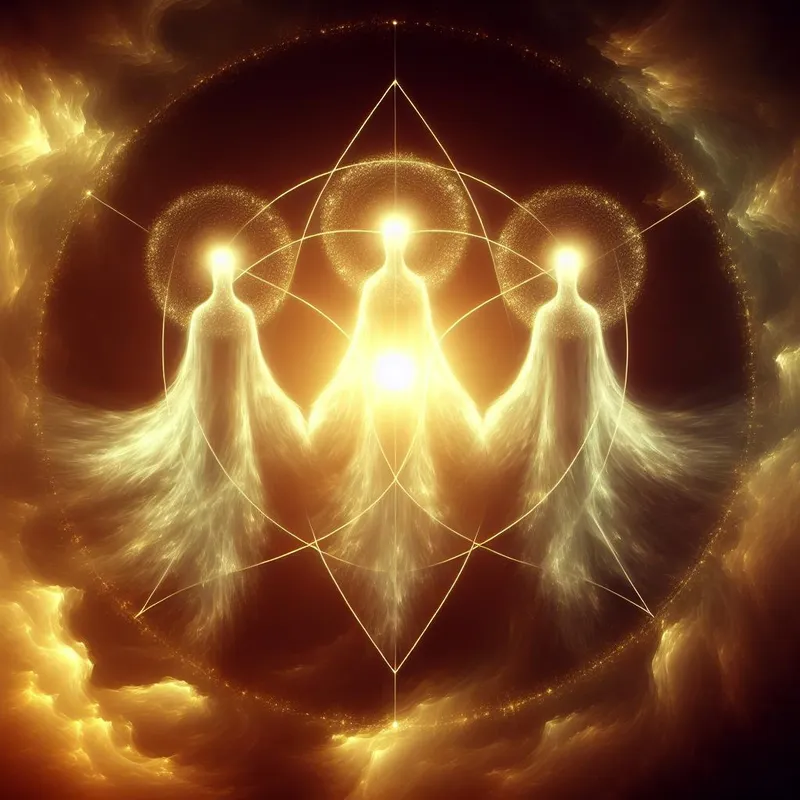
'Unveiling the Sacred Mystery of the Ontological Trinity: A Christian Perspective'
Posted on 03 August 2024
Ontological Trinity: Understanding the Nature of God
In Christian theology, the concept of the Trinity is a fundamental belief that seeks to explain the nature of God. The term "ontological Trinity," also known as the "immanent Trinity," delves into the being or nature of each member of the Trinity. But what exactly does this mean?
The Nature of Being
To understand the ontological Trinity, we must first grasp the concept of ontology, which is the philosophical study of the nature of being. When we speak of the ontological Trinity, we are referring to the essence and attributes of each Person within the Trinity. In essence, it asserts that all three Persons – the Father, Son, and Holy Spirit – share the same divine nature.
Equality in Nature
The teaching of the ontological Trinity emphasizes equality among the three Persons of God. They are equal in power, glory, wisdom, and every other aspect of their divine nature. This means that there is no hierarchy or superiority among them. While they fulfill different roles within creation and salvation (which we'll explore later), they are inherently equal in their divine attributes.
Essential Unity
The ontological Trinity is also sometimes referred to as the "essential Trinity." This term highlights the essential unity and shared divine nature among the Father, Son, and Holy Spirit. It emphasizes that they are not separate gods or entities but rather distinct Persons within one Godhead.
The Economic Trinity
To fully grasp the concept of the ontological Trinity, it is helpful to contrast it with another theological term: the economic Trinity. While the ontological Trinity focuses on who God is, the economic Trinity centers on what God does. The economic Trinity explores the relationships within the Godhead and each Person's role in creation and salvation.
Biblical Basis
The concept of an ontological Trinity finds support in various biblical passages. For instance, John 10:30 states that Jesus and the Father are one. This oneness refers to their shared nature, highlighting their ontological unity. Additionally, in Matthew 28:19, Jesus instructs us to baptize "in the name of the Father and of the Son and of the Holy Spirit." This statement equates the three Persons of the Godhead, affirming their ontological equality.
Why This Matters
Understanding the ontological Trinity is crucial for Christians as it forms the foundation of our belief system. It shapes our understanding of who God is – a triune being with three distinct Persons who are equal in nature. Recognizing this truth helps us develop a deeper appreciation for the complexity and unity of God.
Think About It
Consider how the concept of the ontological Trinity impacts your view of God. How does it shape your understanding of His attributes and relationships within the Godhead? Reflect on how this belief influences your relationship with each Person of the Trinity and your understanding of their roles in creation and salvation.
Symbol for the Trinity
The concept of the Trinity is complex, and finding a symbol that accurately represents it can be challenging. However, one commonly used symbol is a diagram consisting of three interlocking circles. Each circle represents one Person of the Trinity: the Father, Son, and Holy Spirit. The overlapping area symbolizes their essential unity as one Godhead, while the distinct circles represent their individuality as distinct Persons.

While this symbol can help us visualize the Trinity, it is important to remember that no single representation can fully capture the depth and mystery of this theological concept.
Conclusion
The ontological Trinity is a fundamental doctrine in Christianity that explores the nature of God. It emphasizes that each Person within the Trinity shares the same divine nature and is equal in power, glory, wisdom, and all other attributes. This concept is essential to our understanding of God's unity and informs our relationship with each Person of the Trinity. As we reflect on the ontological Trinity, let us marvel at the complexity and beauty of our triune God.
